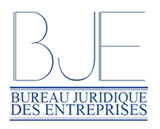News Analysis: French Tax Authorities Lose Battle on Stolen Data
by Jérôme Delaurière and Charlotte Prest
A new chapter has emerged concerning the 2008 theft by an HSBC employee of information on thousands of HSBC Private Bank customers and their accounts in Switzerland.
The employee had communicated the data to the French prosecutor in Nice in early 2009. The stolen data included a list of names, account numbers, and addresses of 3,000 French residents who held Swiss bank accounts and who were suspected of tax evasion. In August 2009, the French Ministry for the Budget, which had received a copy of the list from the prosecutor, urged the listed taxpayers to regularize their affairs by December 31, 2009. The tax authorities used the list to identify possible tax evasion for those who did not regularize their affairs.
The tax authorities raided the homes of some of the taxpayers named on the list. Article L16 B of the French Book of Tax Procedures (Livre des Procédures Fiscales) allows the tax authorities to carry out searches of an individual’s place of residence when there are suspicions of tax fraud, subject to an advance court order from a civil judge. To grant this authorization, the judge must render a decision based on the evidence provided of the likely existence of tax fraud. In this case, the HSBC list on which the taxpayer’s name was referenced was provided as the main evidence.
Since the 2008 Ravon decision rendered by the European Court of Human Rights (ECHR) (ruling that raids by the French tax authorities were in breach of article 6.1 of the Convention for the Protection of Human Rights) and the reform1 of article L16 B that followed, taxpayers may, a posteriori, appeal the court order allowing the raid. In practice, the new legal remedy now allows taxpayers to :
- dispute the validity of the order authorizing the search; and
- obtain the cancellation of the investigations implemented in violation of article L16 B of the Book of Tax Procedures.
One of the 3,000 HSBC customers argued before the Paris Court of Appeal that HSBC’s list, which was a stolen document, was an unlawful document. Therefore, according to the taxpayer, the French tax authorities should not have presented the document to the judge of first instance, who issued the court order allowing a raid of his domicile on June 15, 2010.
On February 8, 2011, the president of the Paris Court of Appeal agreed with the taxpayer’s position. The court held that because the data had been stolen, the origin of the evidence that was presented to the judge of first instance was unlawful. In addition, the communication of the data to the French tax authorities by the prosecutor of Nice in accordance with the provisions of article 101 of the Book of Tax Procedures did not make the data lawful. The court noted that the French tax authorities had received a copy of the data several months before the official communication was made by the prosecutor of Nice.
As a result, the court canceled the search authorization order, considering that without the unlawfully obtained HSBC data, the evidence presented by the French tax authorities was not sufficient to constitute a presumption of tax fraud that would have allowed the raid to take place.
In a decision rendered on April 7, 2010 (Cass. com. n° 09-15.122, DGFiP c/ C.), the Supreme Civil Court ruled that a judge should verify that the information provided by the French tax authorities has been obtained through lawful means.
The Supreme Civil Court strengthened this position in a key decision dated January 7, 2011 (Cass. com. n° 09-14.316 and 09-14.667, Sté Philips), based on article 6 section 1 of the European Human Rights Convention and the duty of loyalty in the context of the search for evidence. In the decision the Supreme Civil Court emphasized the importance of the duty of loyalty in all contentious matters and held that:
[I]f the economic considerations cannot be ignored by the judge, such considerations shall not distract the judge from his obligation to judge in accordance with the fundamental principles which govern the legitimacy of his action.
The French tax authorities have appealed the decision rendered by the Paris Court of Appeal. However, based on the position of the Supreme Civil Court, it would be surprising if the Supreme Civil Court cancels the decision
A possible adverse effect of this decision is that it may encourage the French tax authorities to increase their use of the new judicial tax investigation powers under the 2009 amended Finance Law (article L228 of the Book of Tax Procedures), which created a tax policing department.
Those powers are governed by principles of penal law that are less strict about the use of unlawful evidence than the principles of civil law (which are applicable to the raids carried out under article L16 B). Although those powers are supposed to be used solely for complex tax fraud schemes involving the use of false documents, bank accounts in a tax haven, or entities located in a tax haven, a recent response from the Minister for Justice2 regarding tax expatriates implicitly confirms that the French tax authorities are likely to increase their use of the new judicial tax investigation powers.
It will take some time before the delicate balance can be struck between the need to fight tax fraud and the need to protect taxpayers’ rights. Nonetheless, the Paris Court of Appeal decision is a clear victory for the duty of loyalty and the right to a fair trial, which are as important (if not more so) than the need to combat tax fraud. ◆
♦ Jérôme Delaurière and Charlotte Prest are lawyers with Gibson Dunn & Crutcher in Paris
Publications-temp





